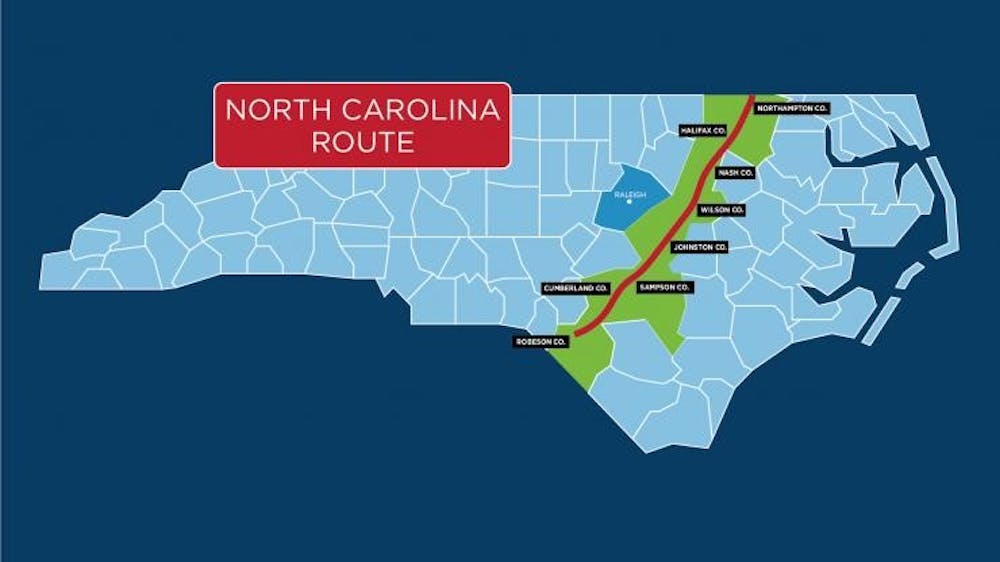As construction of the Atlantic Coast Pipeline progresses, there is controversy in Robeson County about the legality of the portion of the project intended to run through the county.
The ACP is a natural gas pipeline planned to run approximately 600 miles from West Virginia to North Carolina and end in Robeson County. Dominion Energy, a natural gas supplier, is working alongside Duke Energy and Piedmont Natural Gas to construct the pipeline.
Robie Goins is a member of EcoRobeson, a grassroots organization which advocates for environmental protection and public health. Goins is a part of a lawsuit, filed against the ACP and the Robeson County Board of Commissioners, which opposes the construction of a metering and regulating station at the pipeline’s end.
That station monitors the status of the pipeline, and Goins said its placement conflicts with property rights.
“(The Board of Commissioners) really didn’t give the public notice or information about the project and didn’t give us a chance to speak about it,” he said. “We feel that their decision was influenced by ACP and the false claims of economic development, possible kickbacks to commissioners and campaign money.”
The ACP advertises it will bring over 19,400 new jobs to the three states it is planned to run through, as well as $377 million in energy savings and $28 million in annual local tax revenue. Robeson County, one of the poorest in North Carolina, is predicted to earn nearly $7 million by 2025.
“The purpose of the project is to bring additional supplies of natural gas to Virginia and North Carolina and to meet the growing energy needs of businesses and consumers,” said Aaron Ruby, spokesperson for Dominion Energy.
NC Warn, an environmental justice group, brought together organizations from across seven counties that dispute the pipeline. In a press release from May 2018, the group said energy predictions do not indicate significantly greater demand.
The pipeline’s construction also raises environmental concerns. The ACP will draw natural methane gas through a method called fracking, which is opposed by many environmentalists.




